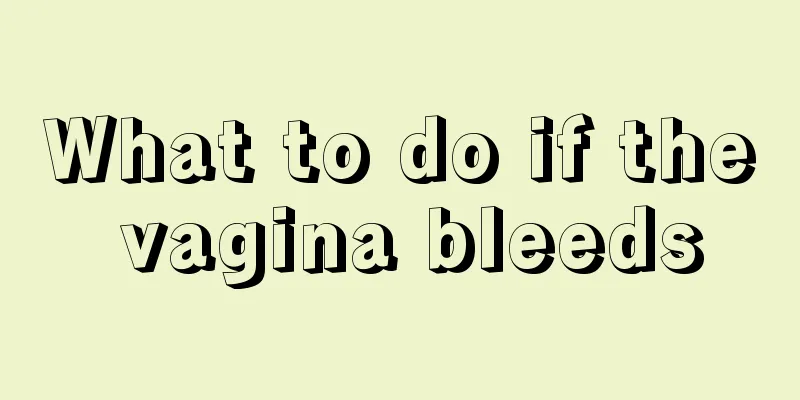What medicine should I take if ovulation is not good?

|
Ovulation is very important for women. On the one hand, good or bad ovulation indicates whether the female's reproductive health is good. On the other hand, for women who want to have children, if ovulation is not good, it will often lead to infertility. When ovulation is not good, you can seek treatment under the guidance of a doctor, which can achieve the effect of promoting ovulation. Let's take a look at what medicine to take for poor ovulation. What medicine should I take if ovulation is not good? 1. Clomiphene has anti-estrogen effects Clomiphene, as a synthetic non-steroidal compound, has a strong anti-estrogen effect. It can act on receptors in the hypothalamus, blocking the negative feedback information of endogenous estrogen to the hypothalamus, thereby increasing the secretion of gonadotropin and thus increasing ovulation. Its recovery rate for human ovulation is as high as 70% to 80%, and the probability of pregnancy in women after treatment is between 30% and 40%. It is suitable for conditions such as anovulation, amenorrhea, luteal insufficiency, amenorrhea and lactation syndrome, and pituitary tumors. 2. Gonadotropin helps ovulation Each gonadotropin contains 75 international units of follicle-stimulating hormone and luteinizing hormone. It cannot be taken orally and needs to be injected intramuscularly into the patient. It can stimulate the growth and maturation of follicles, and also stimulate the glands to secrete estrogen. Can also be used with HCG to stimulate ovulation. Suitable for endogenous pituitary gonadotropin deficiency, such as Sheehan's disease. It can also be used by those who have insufficient hypothalamic GnRH secretion and who have not responded significantly to clomiphene. The probability of ovulation recovery after use is about 90%, and the probability of pregnancy is between 50% and 70%. 3. Bromocriptine helps ovulation Ovulation-stimulating drugs are generally used to treat female infertility caused by anovulation, but the side effects of using ovulation-stimulating drugs are still very obvious. The ovaries continue to ovulate under the stimulation of the drugs, which can easily cause irregular menstruation, premature ovarian failure, and in severe cases, ovarian tumors. Therefore, you need to be cautious when taking ovulation-stimulating drugs and make sure to take them under the guidance of a doctor. 4. Luteinizing hormone-releasing hormone helps ovulation Suitable for anovulators with insufficient hypothalamic secretion. Use micropump pulse intravenous injection, with pulse intervals of 90 to 120 minutes, small doses of 1 to 5 μg/pulse, large doses of 10 to 20 μg/pulse, for 17 to 20 days, or starting from the 5th day of the menstrual cycle, intramuscular injection of 50 μg daily for 7 to 10 consecutive days. |
<<: Bitter taste in the mouth when eating during pregnancy
>>: One week after ovulation, the feeling of menstruation
Recommend
Can I eat chocolate during my period?
Chocolate is a favorite of many people because of...
Treatment of second degree uterine erosion
Everyone wants to have a healthy body, but with t...
Skin color after cupping is a barometer of health
Cupping is a traditional Chinese medicine treatme...
The beauty benefits of betaine
Ladies who love beauty and like cosmetic treatmen...
I go to the toilet as soon as I drink water. Is it because of kidney problems?
Review expert: Cao Qingwei, deputy chief physicia...
Does it make sense to “avoid cold drinks when the weather is hot”?
It's the beginning of autumn, is the hot summ...
Pain under the ribs in the right upper abdomen of a woman
In life, there are many reasons for sudden lower ...
Winter women's health care methods
Many people like to keep in good health in winter...
What is the reference value for thyroid hormone during pregnancy?
Under normal circumstances, the thyroid hormones ...
What should you do when you try hard to fall asleep but can't?
The lives of modern people are becoming increasin...
Fetal development at 32 weeks of pregnancy
By the 32nd week of pregnancy, the baby's dev...
Is brown at the end of period considered clean?
Women during menstruation will have some concerns...
I didn't finish taking progesterone before my period came
Under normal circumstances, women have their mens...
Can abnormal pelvic tilt lead to dystocia?
The pelvic tilt is the angle between the pelvic i...









